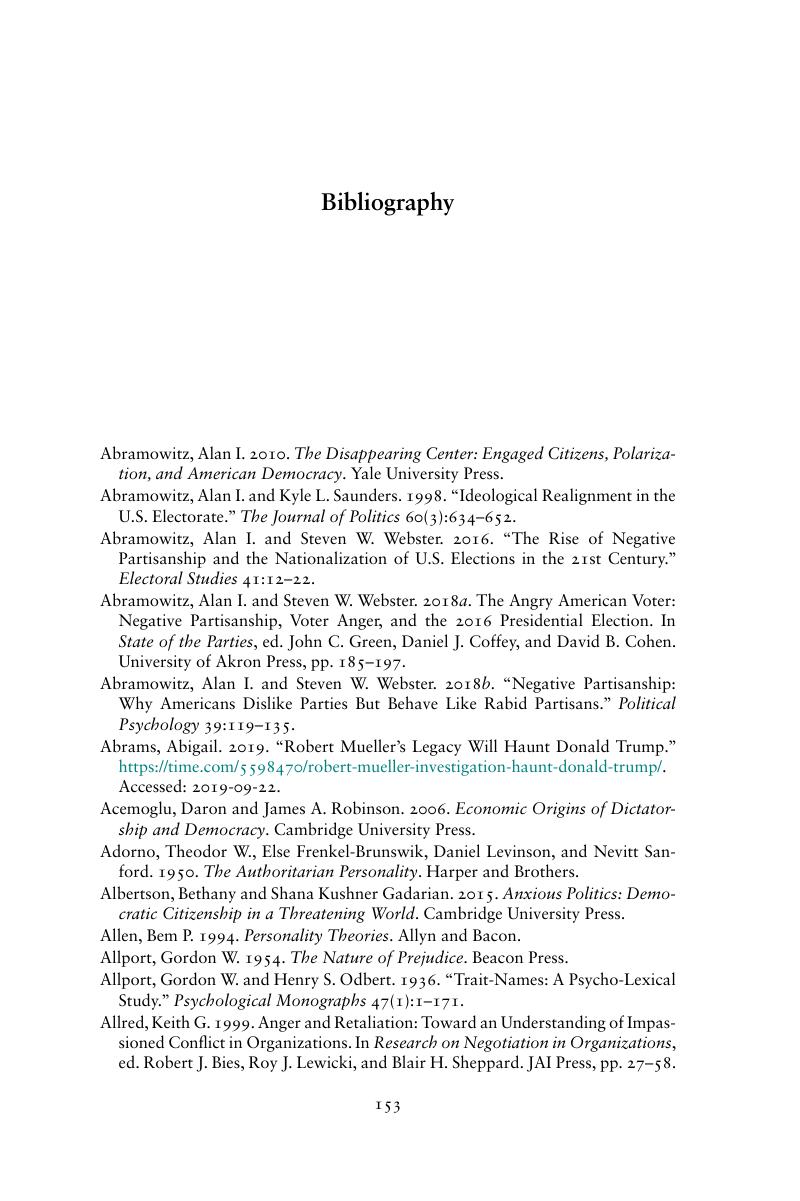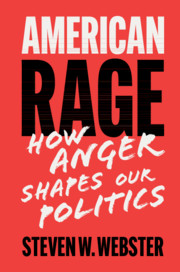Book contents
- Frontmatter
- Dedication
- Contents
- List of Figures
- List of Tables
- Preface
- Acknowledgements
- 1 The Rise of Anger in the American Public
- 2 Political Elites and the Strategic Use of Anger
- 3 Trait-Based Anger and Governmental Distrust
- 4 The Causal Effect of Anger on Trust in Government
- 5 Anger and Democratic Values in the Mass Public
- 6 Anger and Voter Loyalty
- 7 Anger and the Future of American Government
- Bibliography
- Index
- References
Bibliography
Published online by Cambridge University Press: 31 August 2020
- Frontmatter
- Dedication
- Contents
- List of Figures
- List of Tables
- Preface
- Acknowledgements
- 1 The Rise of Anger in the American Public
- 2 Political Elites and the Strategic Use of Anger
- 3 Trait-Based Anger and Governmental Distrust
- 4 The Causal Effect of Anger on Trust in Government
- 5 Anger and Democratic Values in the Mass Public
- 6 Anger and Voter Loyalty
- 7 Anger and the Future of American Government
- Bibliography
- Index
- References
Summary

- Type
- Chapter
- Information
- American RageHow Anger Shapes Our Politics, pp. 153 - 164Publisher: Cambridge University PressPrint publication year: 2020



